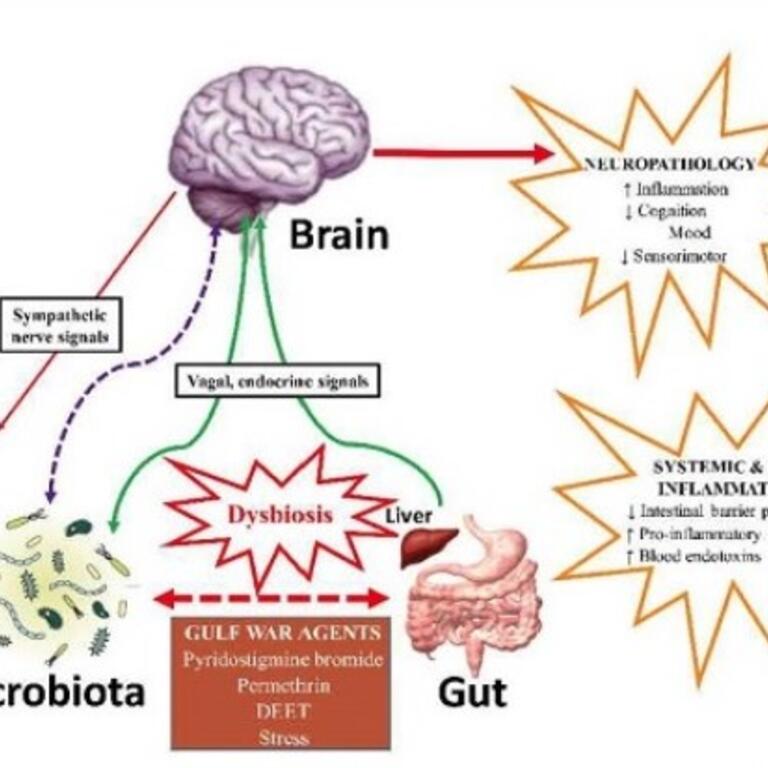Persistent organic pollutants in the indoor and outdoor environment contaminate breast milk and produce adverse effects on offspring’s cognitive ability, social behaviors and metabolic health that persist into adulthood. Using an in vivo mouse model we aim to characterize the reprogrammed phenotypes, at the molecular, neurochemical, circuit and behavioral level, produced by early developmental exposure to polybrominated diphenyl ethers (PBDEs) that are relevant to neurodevelopmental disorders such as autism. Other studies are focused on gut-brain interactions that underlie chronic fatigue and cognitive impairments in a mouse model of Gulf War Illness (GWI). Using gut sensory deafferentation and probiotic therapy with our UCR collaborators we aim to clarify the pathophysiology/etiology underlying GWI.


